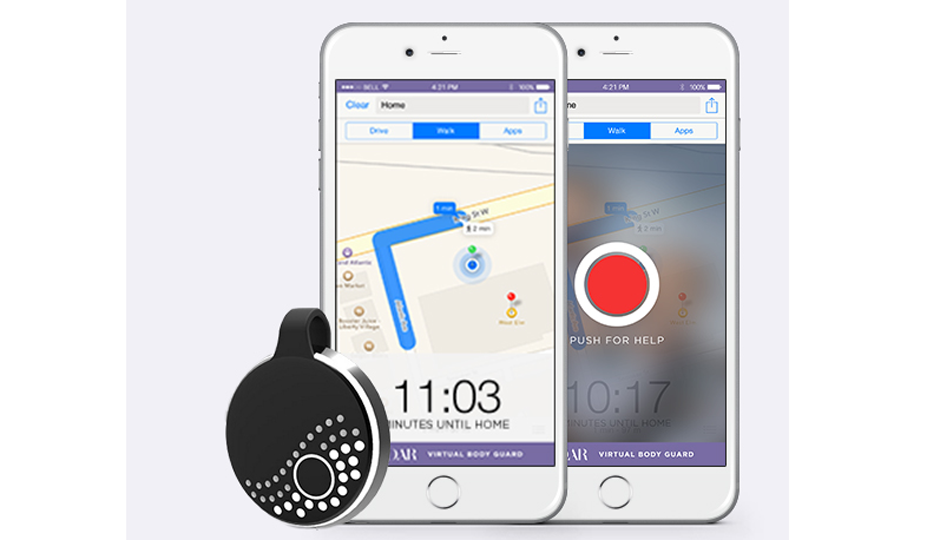Meet 4 Philly Companies Redefining Innovation
The University City Science Center has been fostering innovation from young entrepreneurs long before it was trendy and cool. After 52 years, they know a thing or two about taking a company from the concept stage to a serious player in their industry.
I recently visited UCSC where I spoke to four very different entrepreneurs who are doing some seriously cool stuff. Here’s what I learned:
1. Science Makes Beer Taste Better
For craft brewers, pediococcus and lactobacillus can be mortal enemies — but if used in the proper amounts, it can give the beer an amazing, unique taste. But brewers are very concerned that having improper amounts of yeast or bacteria can alter the taste or even render an entire batch of beer useless.
So an increasing number have turned to Invisible Sentinel, which provides a handheld test for a number of different potential contaminants. Called brewPAL, the test was first used for Victory Brewing Co. but has quickly spread to more than 25 breweries across the world. In fact, it’s become the company’s fastest-growing business segment by far. (Invisible Sentinel also makes foodborne pathogen detection systems for food and wine. The beer business is still less than 25 percent of total revenue, but it’s only a few months old.)
“Breweries are a tight knit community, they all know each other and talk to each other,” said Benjamin Pascal, chief business officer. “Word of mouth has been very helpful for us.”
But all breweries make different styles of beer and use different ingredients and nuances in their brewing. That means Invisible Sentinel had to do plenty of research on just what types of tests were important to brewers.
“Our tests are completely based on what the needs of the market are,” said Pascal. “Adoption has been really quick. We can do a lot of things with a molecular diagnostic that most companies – coming from the clinical or academic world – can’t do.”
And the reaction from breweries has been overwhelmingly positive, he said.
“Our brewers are like: ‘This is awesome. It’s a game changer,” said Pascal. “What traditionally took them seven days, we’re doing in three hours.”
Whether the tests become standard in all breweries remains to be seen, but Pascal says that they’re a great way for small- and medium-sized brewers to have inexpensive access to state-of-the-art tests and quickly learn about a contaminated batch — which could be a fatal blow to a young business.
“If I put my beer on the market and the flavor is off, the market will drop me and I won’t be able to sell it again,” he said. “It’s that competitive.”
2. Like Etsy and Kickstarter Had a Baby
Launching a business in the fashion industry is notoriously tough. The world is full of small jewelry makers, dress designers and fashionistas hoping to make their mark — and many companies get lost in the mix. Colabination aims to help them by creating an all-encompassing website showcasing designers that don’t have the money to create a robust online presence (let alone a brick-and-mortar store.)
“Think Etsy with a mixture of Kickstarter,” said Scott Latham, CEO and co-founder of Colabination.
That “Kickstarter” portion of the business is the ability to help local, brand-new fashion designers get exposure, something Latham says is particularly valuable to both customers and the designers.
“I think we have the advantage of being able to tell these designers’ stories,” said Latham. “There’s emotional value associated with being able to relate and represent a brand that shares the same lifestyle of you. These brands are usually really important to the people who shop them.”
With designers around the world, customers can get access to styles they’d never see all the in same place. Likewise, designers that would never have gotten the chance to meet can collaborate with one another — and potentially attract each other’s customers.
“They’re not just joining a site to list their products, they’re joining a community,” said Latham. “We have calls with our designers on a weekly basis just to see what’s going on, keep them informed on what we’re doing and really collaborate as much as possible.”
3. Combating Sexual Assault Through Fashion
During a six-month backpacking trip across South America, Yasmine Mustafa was deeply moved learning that so many of the women she met were victims of sexual assault. Just a week after returning home to Philadelphia, a woman was brutally beaten and raped in a parking garage at 17th and Callowhill Streets in Spring Garden. She’d had enough.
So she started a company called Roar, which makes jewelry with a button on the side that sounds an alarm, shines a light, sends a text message to selected contacts and calls 911 with your GPS coordinates. Oh, and the jewelry looks cool.
Co-founder Anthony Gold says: “We wanted to come up with something that women are actually going to use that can serve as a deterrent that can’t be used against you in any way,” unlike pepper spray or a knife that could be turned against you by a perpetrator.
The company is also developing Virtual Bodyguard. It works by alerting friends or family when the user is leaving work or the college library, then allows them to watch the user’s GPS coordinates as they travel home.
“We’re not trying to make it Big Brother-ish,” said Gold. “We just want your roommate to know when you’re coming home.”
So far, Roar is still in the conceptual and testing stages with the product. It also hopes to expand its market to kids and seniors.
A percentage of the Roar’s profits will go toward charities that teach young boys and girls about empathy, consent and respect.
“Our whole mission is to make a dent in the assaults against women,” said Gold.
4. A Librarian for the Digital Age
Quantifying the size of the Internet is a huge undertaking. Eleni Miltsakaki says it’s one trillion pages with 100 million pages added everyday. So how can a third grader studying the solar system figure out which pages are written at his or her reading level, and which pages are written for college graduates?
Choosito! is attempting to offer an answer.
“In brick-and-mortar world, this job was the librarian’s,” said Miltsakaki, the Choosito! founder and CEO. “But the Internet is not a library, and search engines are not librarians.” So her company analyzes “the linguistic content of every website in a real-time search to tell you the reading level of each site.” That potentially allows students reading at different levels to use resources that are appropriate for them — rather than an entire class dumbing down its texts to the lowest common denominator.
The company’s quest to turn the web into a leveled library is a huge undertaking for sure, but one that has gotten some serious support. In fact, the company received a $1 million small business innovation grant from the National Science Foundation.
A teacher herself in Penn’s graduate school of education, she sent emails to 100 teachers to kick off the project. In just a few months, she says Choosito! has 13,000 users.
“The vision is to help teachers and students to finally make good use of the information that is on the Internet instead of sifting through until you find something that makes sense,” she said.
Initally, Choosito is targeting kindergarten to eighth graders and hopes to be integrated into the curriculum of as many schools as possible. Miltsakaki also said she’s looking into licensing the technology to larger education companies.
Getting cash-strapped school districts to spend money on Choosito! will certainly be a challenge, but Miltsakaki says there is plenty of money out there.
“There are always budgets that limit the amount you can get, but the amount of money spent on education technology is extremely large,” she said. “The tough part is how much time it takes. I think schools can differentiate a flashy tool from one that can make a big difference.”






